The Real Skin Census: 12 People Share How They Built A Positive Relationship With Their Skin
'Skin deep' is a phrase we hear often in life, suggesting something to be surface-level, trivial and of little meaning. Despite being the body’s largest organ, skin can often be regarded as superficial. As someone who works in beauty, champions loving the skin you’re in and experiences cystic breakouts, I can’t help but feel a little guilty whenever I feel ashamed of my skin.
But the truth is, skin isn’t a superficial topic. Our skin should be cared for, accepted and loved, whatever its state. This is something that skincare brand Cetaphil knows well. Believing that our relationship with our skin should never hold us back, Cetaphil believes your skin should never get in the way of you. In a bid to redefine skin positivity, we’ve pulled together a census of sorts. Featuring 12 real-life people with real-life skin concerns, their stories prove why it’s finally time to rewrite the skincare rules.
AdvertisementADVERTISEMENT

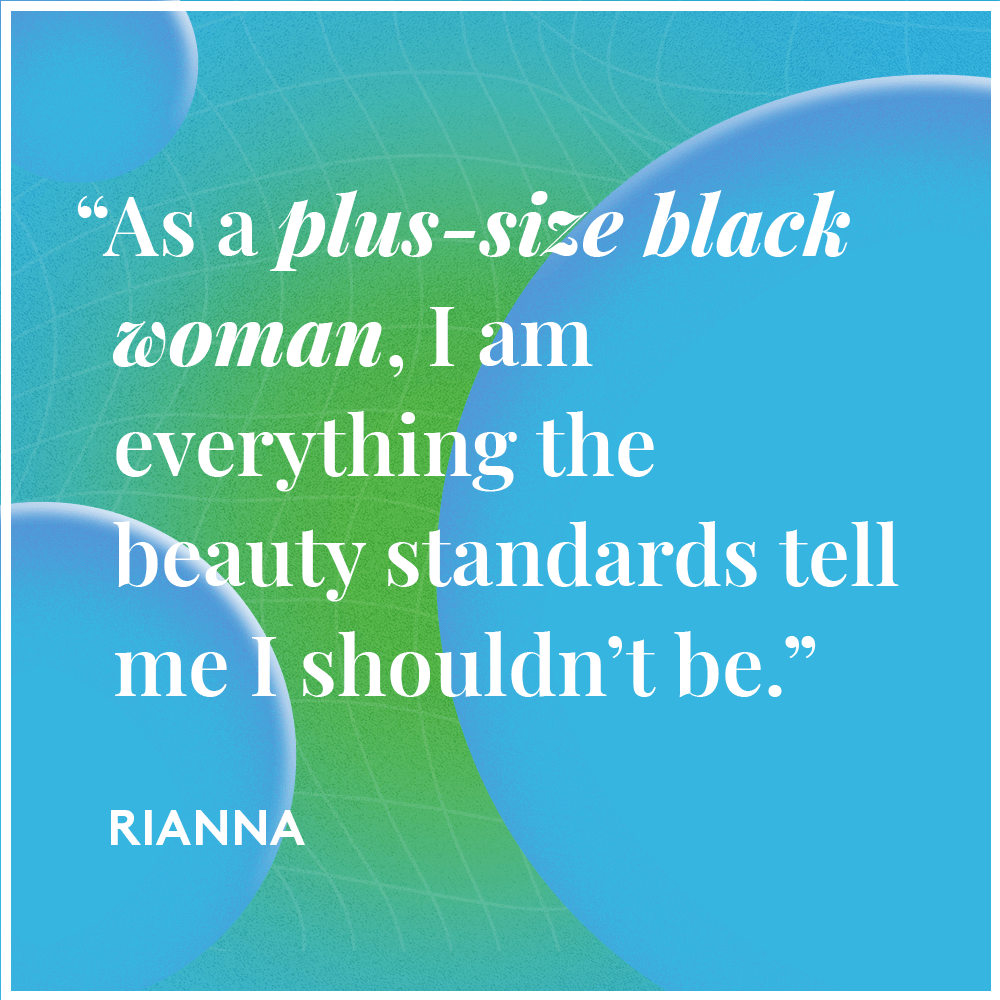


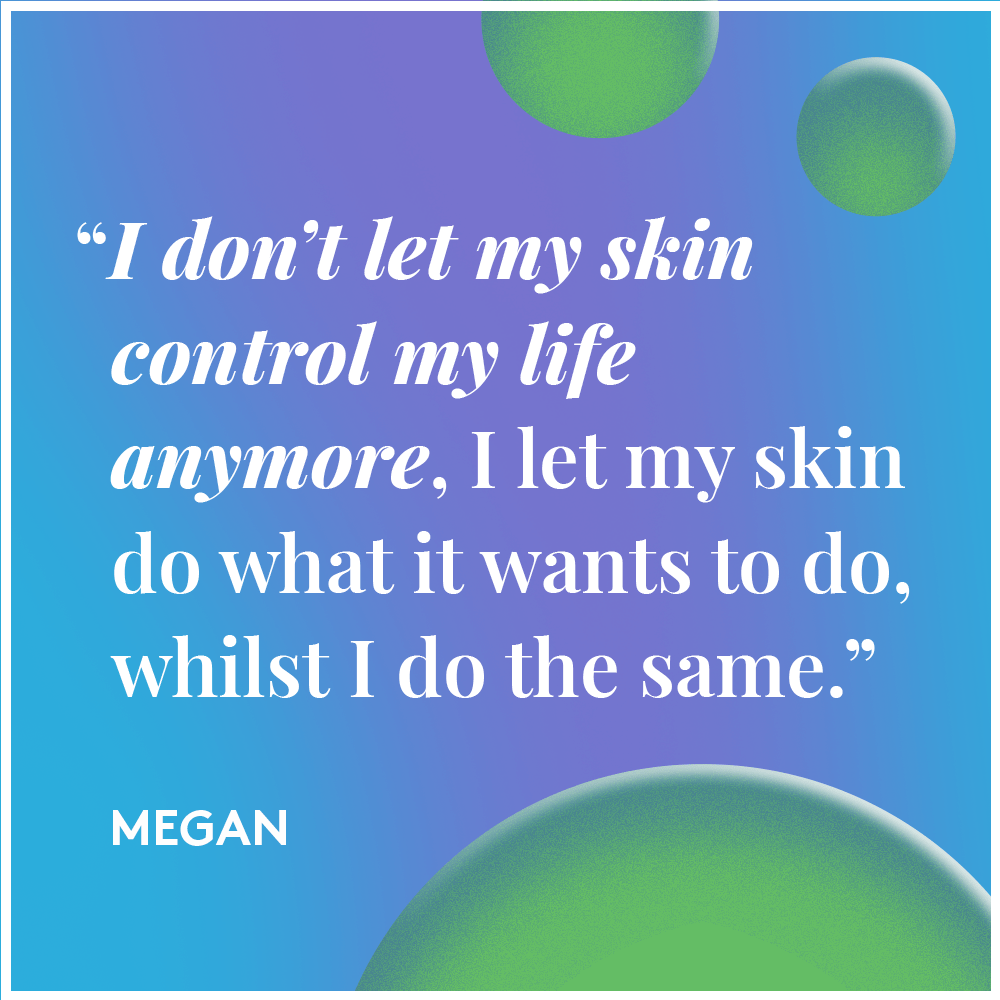

Skin is not broken, skin is acceptance
Coming to terms with the fact that skin is something to be accepted rather than fixed isn’t easy, as Tiara Westlake, 27, understands. "When I was growing up in Indonesia, beauty meant fair, porcelain skin. [My] freckles were undesirable," she says. But after moving to the UK she realised that beauty trends are fluid and that trying to live up to them is an impossible task. "It made me realise my opinions about myself shouldn’t be based on abstract beauty standards."
Perhaps most importantly, accepting your skin comes down to a deep understanding of what can and can’t be changed. "I realised that getting rid of my rosacea wasn’t an option. I instead learned to live with it," says Megan Watson, 25. "This is when the relationship with my skin started to improve – I looked at myself with less anger and shame. I let my skin do what it wants to do while I do the same." Karishma Leckraz, 29, can relate to this mindset through experiencing eczema. "We are always trying to search for perfect skin and that simply does not exist. When you accept your skin for what it is, you put less pressure on yourself to uphold society’s detrimental standards," she says.
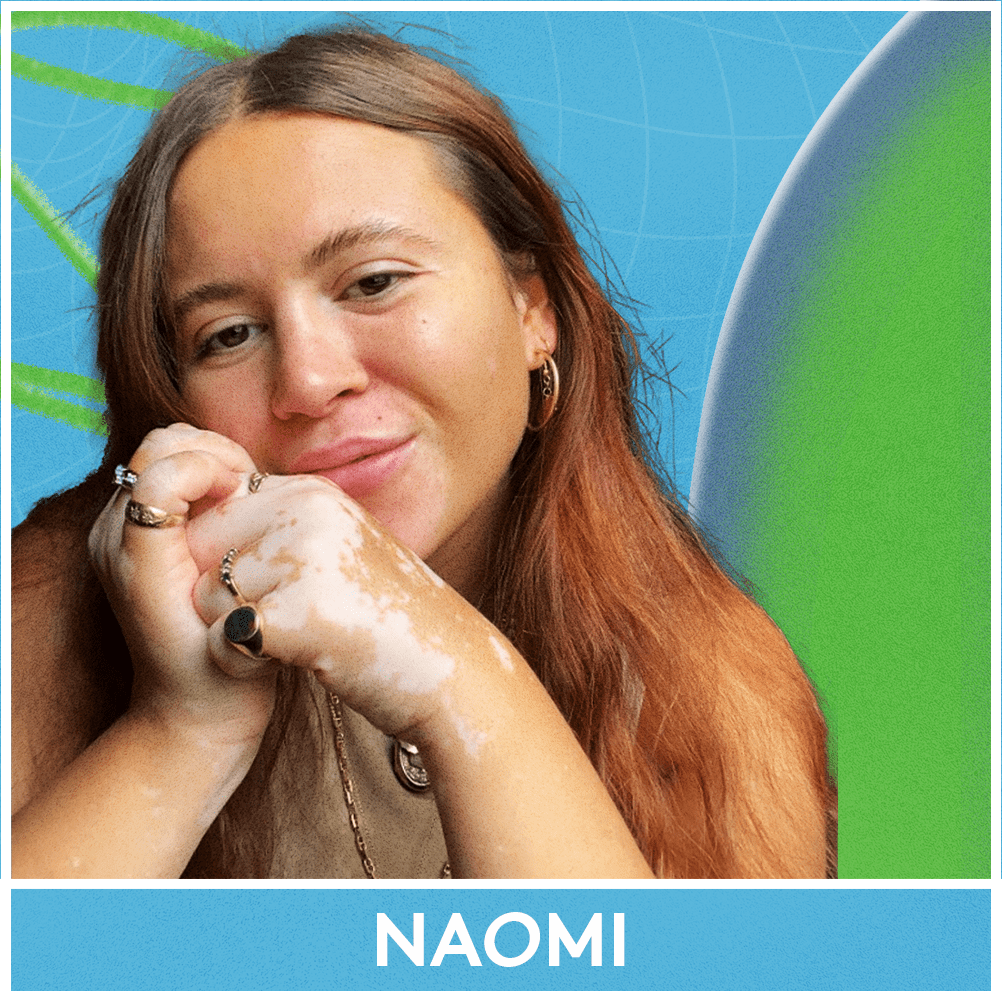

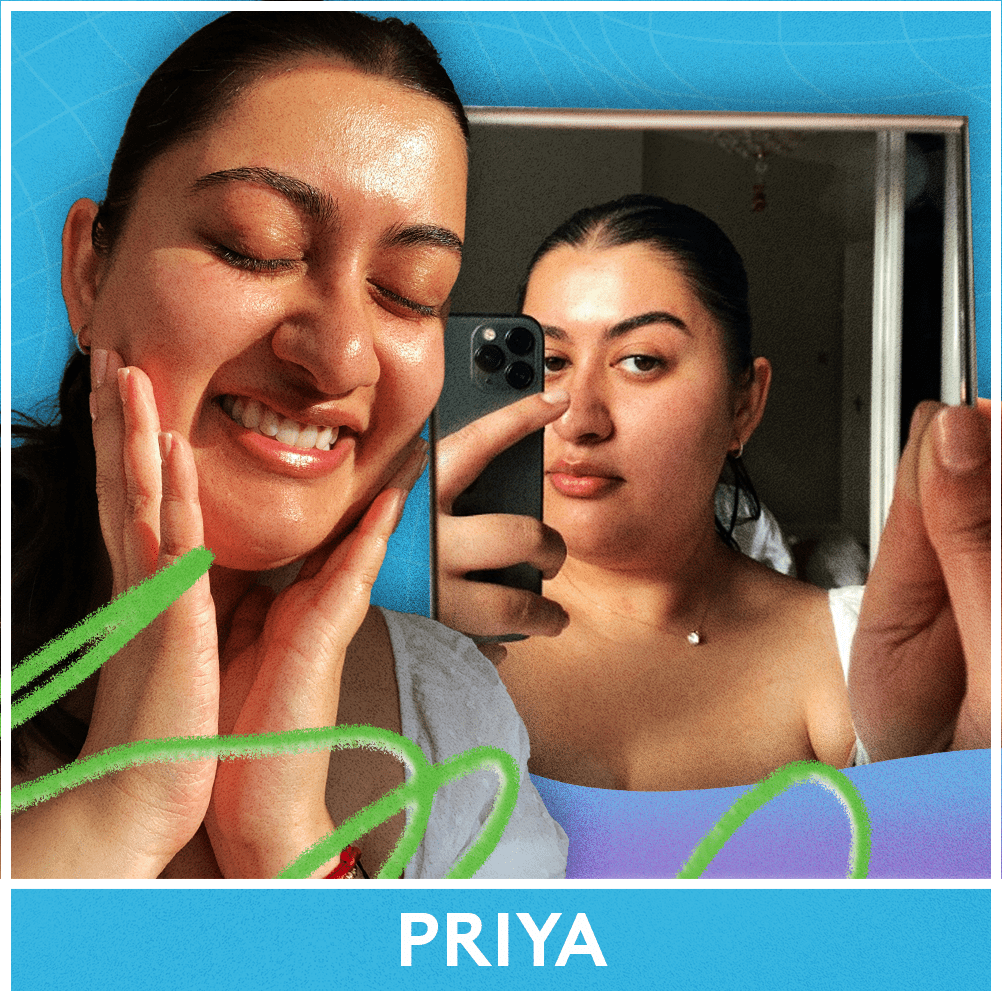

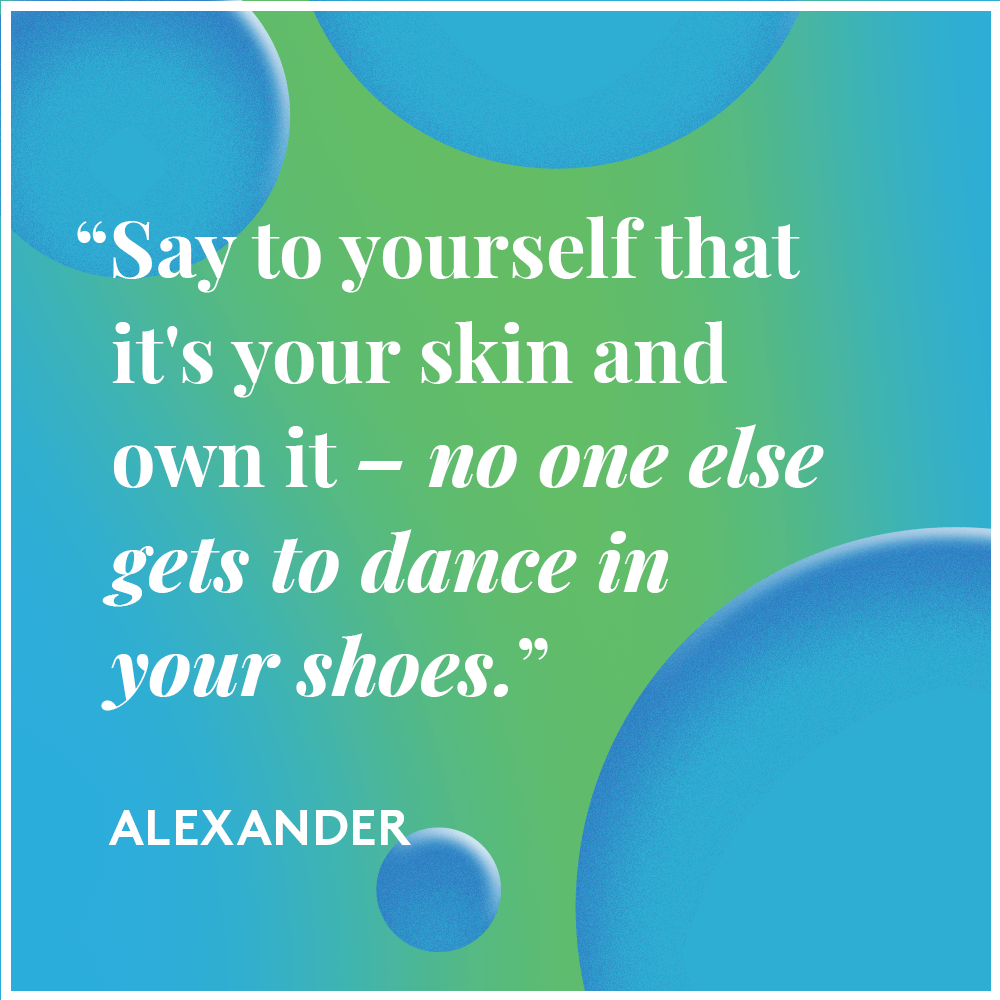

Skin is not an ideal, skin is identity
One of the biggest issues when it comes to a negative skin mentality is around beauty ideals. "When I was a teen, it was hard to look at myself and immediately think, Beautiful," says Rianna Louise Vivienne Alexander, 26. It wasn’t until she started "seeking out people on social media that reflected" her that she managed to redefine her relationship with her skin. "Since they looked like me, I naturally started to think, I am stunning too," she says.
AdvertisementADVERTISEMENT
Just like every part of our body, our skin tells a story and has something to say about us. After she was left scarred at 7 years old by a car accident that killed her father, Angharad George-Carey, 30, saw her scars as "an uninvited dictator of [her] identity". But after going through therapy her views changed. "My scars were what helped me learn how to be vulnerable, connect deeper with others and love myself," she says. When Naomi Barling, 30, was diagnosed with vitiligo she had to "figure out a way to be comfortable" with her skin. "Arriving at more peaceful shores, I have started to understand that my skin condition is a matter of mind over body. Teaching yourself to believe that your skin is your mark, part of your story and choosing what you want it to mean is a mindset shift that had a big effect on me," she says.

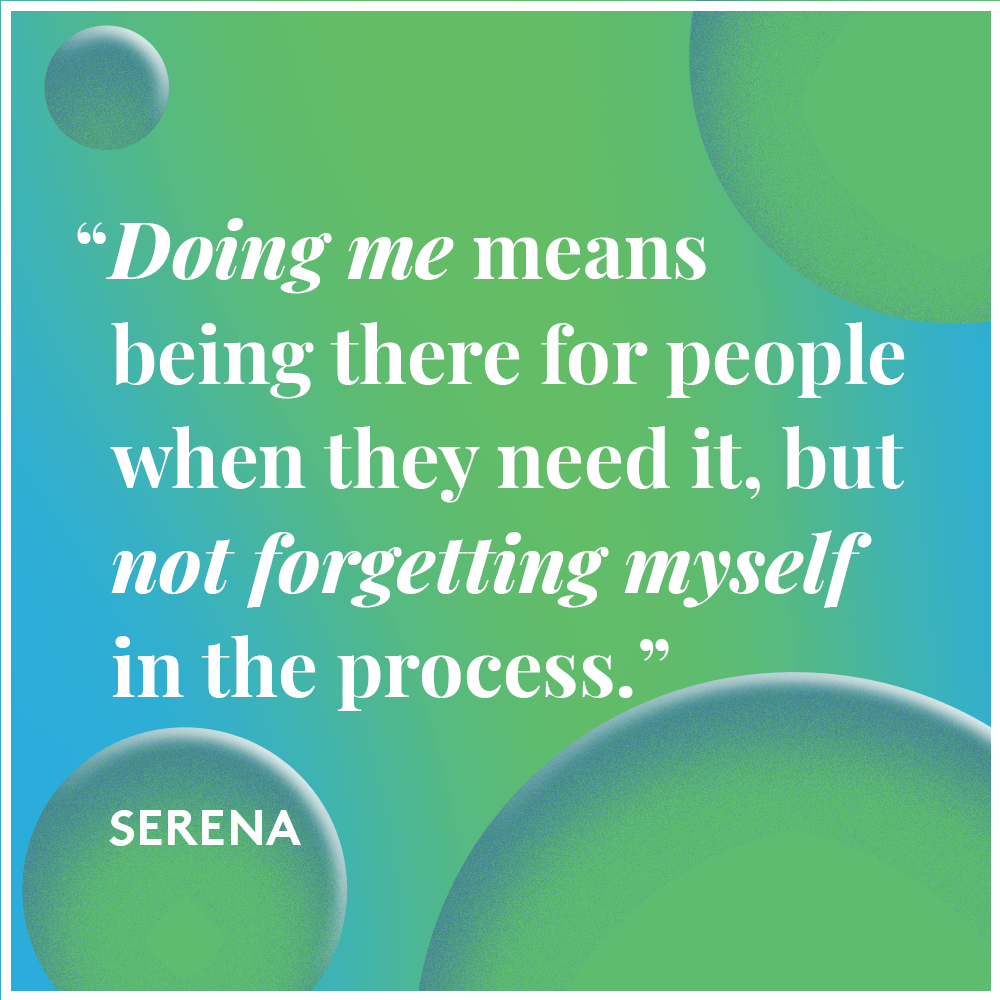


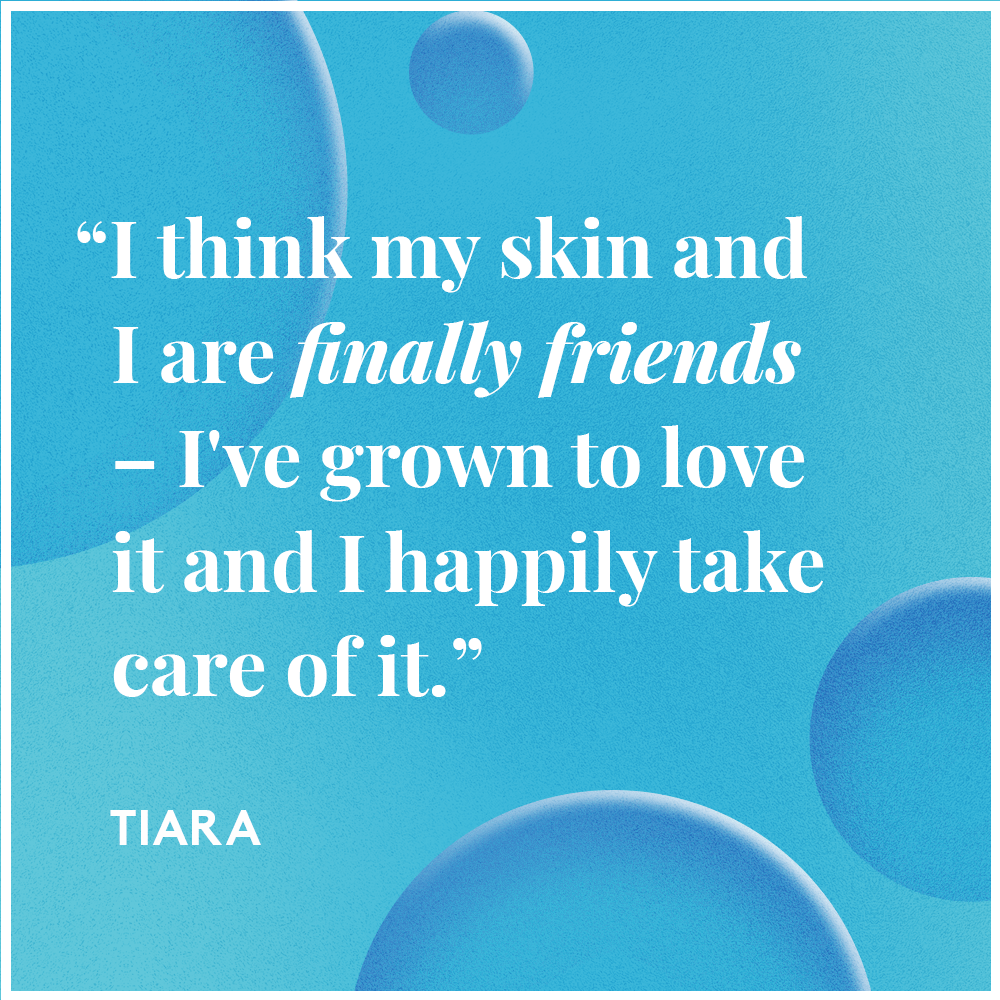
Skin is not alien, skin is ownership
Beyond accepting your skin for how it is, owning the skin you’re in and being proud of it plays a big part in bettering your relationship with it. "[My skin] is my home – I am cosy in it," says Stephanie Rost, 26. "Ideals take away the autonomy of people to be able to define themselves. My skin enjoys life with me."
After experiencing eczema, Serena Lufadeju, 27, used to consider her skin as something worth hiding but owning her skin has led to a sense of freedom. "Nowadays I don’t hide my skin. I leave it on show and wear whatever I want," she says. It’s worth remembering, though, that liberation looks different to everyone. "As long as you approach every day with a smile and kindness, there are not many people in this world that would choose perfect skin over that. No one else gets to dance in your shoes so you have to do it," says Alexander Standish Murray, 21.
AdvertisementADVERTISEMENT
Skin is not embarrassing, skin is confidence
A deep longing to change your skin is often rooted in a lack of confidence in it. Looking after your skin and allowing it to function as its healthiest is a way to improve confidence. Having battled with cystic breakouts, Nan Carriera, 30, believes that skin confidence "has to come from inside". They say: "I like to feel my skin is moisturised and healthy but I don’t pay attention to spots or marks anymore. If you feel confident, that will show in your skin too."
Acknowledging your skin hang-ups and looking past them is what Cassie Quinn, 28, champions. "The key to skin confidence? Embracing imperfections and seeing them as uniqueness. I never let anything bring down the inner confidence I have to reach my full potential," she says. The good news is, it’s never too late to make a change. "Being a POC, beauty ideals have [nearly] always worked against me," says Priya Raj, 25. "What makes you different conventionally is your superpower. Feeling confident in myself truly changed my life; I wish I could turn back the clock and do it sooner."
Cetaphil is a cosmetic range and intended for use on all types of sensitive skin. Please refer to your dermatologist for skin condition treatments.
AdvertisementADVERTISEMENT








